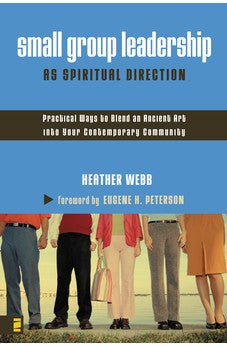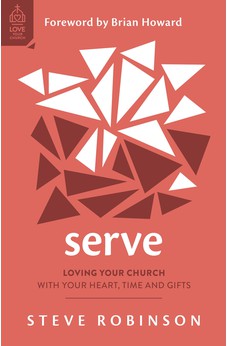Spiritual Lives of the Great Composers
3 Great Reasons to Buy from Us:
Excerpt. © Reprinted by permission. All rights reserved.Johann Sebastian BACH 16851750Through the autumn countryside of Germany, a young man of twenty walks briskly, soaking up the faded October sun and crunching fallen leaves underfoot. It is 1705, and the young man is on his way from Arnstadt to Lubecka two-hundred mile trek. The miles pass quickly as he anticipates the music he is determined to hear. One of the great organists of his day, Dietrich Buxtehude, will be performing evening musical devotions at the Cathedral this time of year, in preparation for Advent.Traveling on foot to hear concerts was nothing new to this young organist; many times he had tramped thirty miles to Hamburg to hear the renowned organist Reincken and had even walked sixty miles to Celle to attend programs of French music. But to hear Buxtehude! For this opportunity, he needed at least a months leave of absence from his position as a church organist. His superiors had grudgingly consented after the organist entreated them relentlessly for the necessary leave.Arriving at Lubeck, footsore yet charged with excitement, the young musician drinks in the organ concerts of the master with a profound sense of personal inspiration. He sends word back to his employer at Arnstadt that he needs two months off instead of just one, knowing he risks being fired.Three years after this experience, he announces his ultimate purpose in life: to create "well-regulated church music to the glory of God." With an insatiable appetite to learn and a propensity for ceaseless work, he set about doing just that. His name was Johann Sebastian Bach. Throughout history, Bach has been acclaimed as the Christian composer, almost a kind of "patron saint" for church musicians. All around the world, he is recognized as one of the greatest composers in history. This is not to say there were no great spiritual composers before Bach; he actually represents the culmination of centuries of Christian music.The sheer number of works he composed is staggering, however, and so is their diversity. They include chorales, cantatas, masses, oratorios, passions, concerti, and solo works for virtually every instrument of his day. Bach was prolific in other areas of life as well: He worked in a variety of demanding jobs (often with many extra-musical duties), and fathered twenty children, several of whom also matured into noted musicians.When Johann Sebastian was born in 1685 in Eisenach, Germany, the Bach name was already synonymous with the musical trade. More than fifty musicians bearing that name are remembered by musicologists today. Even as a boy, Bach appeared eager to find expression for his emerging musical talent.Orphaned at the age of nine, Johann moved in with an older brother, and his musical training began. He soon developed into an outstanding singer and demonstrated a remarkable ability to play the organ, the violin, and numerous other instruments. Bachs brother owned a set of compositions, which he forbade the younger Bach to use. Perhaps because it was placed off-limits, that musical manuscript grew irresistibly attractive to the young musician.And so for weeks, Bach stole the precious pages and hid them in his room, where he stayed up late night after night copying the musical scores by moonlight. When his brother discovered the copied pages, he angrily confiscated them. But Bach had already gleaned valuable lessons in composition, as well as discipline and devotion to music, from the clandestine exercise.Throughout his life he was known much more as an organist than as a composer. Amazing to us, only ten of Bachs original compositions were published during his lifetime. It was not until the nineteenth century that his brilliance as a composer was truly appreciated. Only then would he be revered by such masters as Beethoven, who claimed, "His name ought not to be Bach [Bach is the German word for brook], but ocean, because of his infinite and inexhaustible wealth o
Excerpt. © Reprinted by permission. All rights reserved.Johann Sebastian BACH 16851750Through the autumn countryside of Germany, a young man of twenty walks briskly, soaking up the faded October sun and crunching fallen leaves underfoot. It is 1705, and the young man is on his way from Arnstadt to Lubecka two-hundred mile trek. The miles pass quickly as he anticipates the music he is determined to hear. One of the great organists of his day, Dietrich Buxtehude, will be performing evening musical devotions at the Cathedral this time of year, in preparation for Advent.Traveling on foot to hear concerts was nothing new to this young organist; many times he had tramped thirty miles to Hamburg to hear the renowned organist Reincken and had even walked sixty miles to Celle to attend programs of French music. But to hear Buxtehude! For this opportunity, he needed at least a months leave of absence from his position as a church organist. His superiors had grudgingly consented after the organist entreated them relentlessly for the necessary leave.Arriving at Lubeck, footsore yet charged with excitement, the young musician drinks in the organ concerts of the master with a profound sense of personal inspiration. He sends word back to his employer at Arnstadt that he needs two months off instead of just one, knowing he risks being fired.Three years after this experience, he announces his ultimate purpose in life: to create "well-regulated church music to the glory of God." With an insatiable appetite to learn and a propensity for ceaseless work, he set about doing just that. His name was Johann Sebastian Bach. Throughout history, Bach has been acclaimed as the Christian composer, almost a kind of "patron saint" for church musicians. All around the world, he is recognized as one of the greatest composers in history. This is not to say there were no great spiritual composers before Bach; he actually represents the culmination of centuries of Christian music.The sheer number of works he composed is staggering, however, and so is their diversity. They include chorales, cantatas, masses, oratorios, passions, concerti, and solo works for virtually every instrument of his day. Bach was prolific in other areas of life as well: He worked in a variety of demanding jobs (often with many extra-musical duties), and fathered twenty children, several of whom also matured into noted musicians.When Johann Sebastian was born in 1685 in Eisenach, Germany, the Bach name was already synonymous with the musical trade. More than fifty musicians bearing that name are remembered by musicologists today. Even as a boy, Bach appeared eager to find expression for his emerging musical talent.Orphaned at the age of nine, Johann moved in with an older brother, and his musical training began. He soon developed into an outstanding singer and demonstrated a remarkable ability to play the organ, the violin, and numerous other instruments. Bachs brother owned a set of compositions, which he forbade the younger Bach to use. Perhaps because it was placed off-limits, that musical manuscript grew irresistibly attractive to the young musician.And so for weeks, Bach stole the precious pages and hid them in his room, where he stayed up late night after night copying the musical scores by moonlight. When his brother discovered the copied pages, he angrily confiscated them. But Bach had already gleaned valuable lessons in composition, as well as discipline and devotion to music, from the clandestine exercise.Throughout his life he was known much more as an organist than as a composer. Amazing to us, only ten of Bachs original compositions were published during his lifetime. It was not until the nineteenth century that his brilliance as a composer was truly appreciated. Only then would he be revered by such masters as Beethoven, who claimed, "His name ought not to be Bach [Bach is the German word for brook], but ocean, because of his infinite and inexhaustible wealth o


































